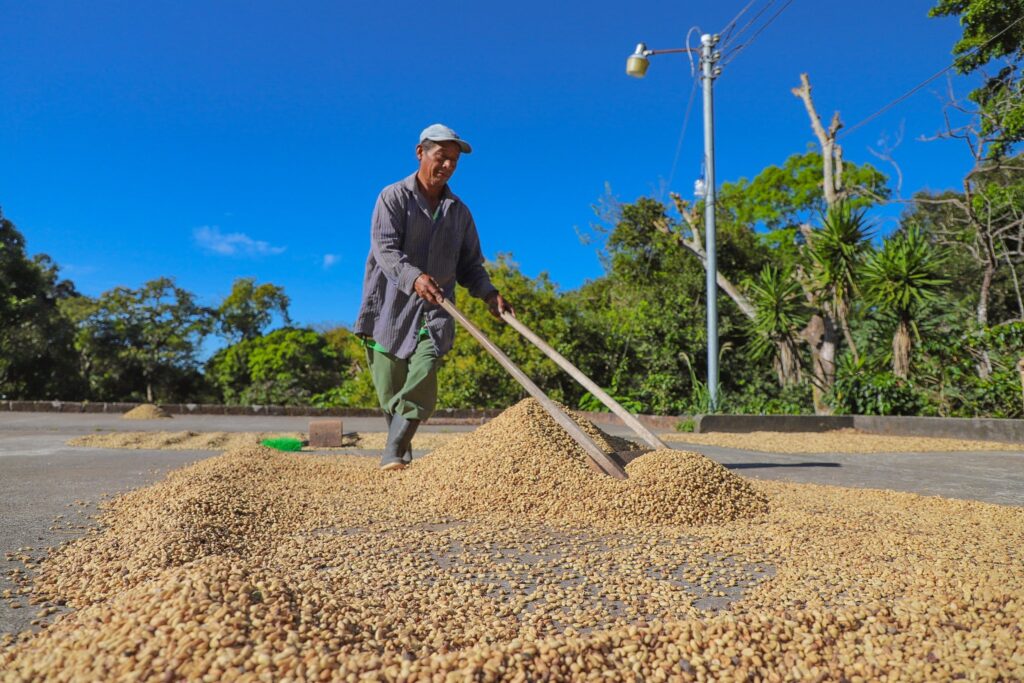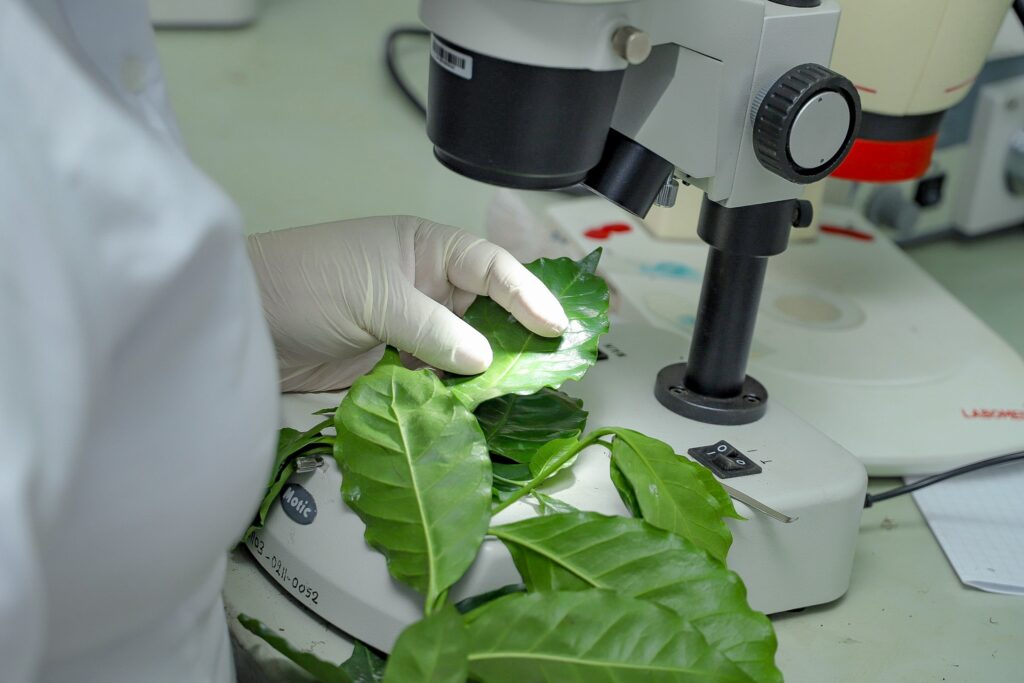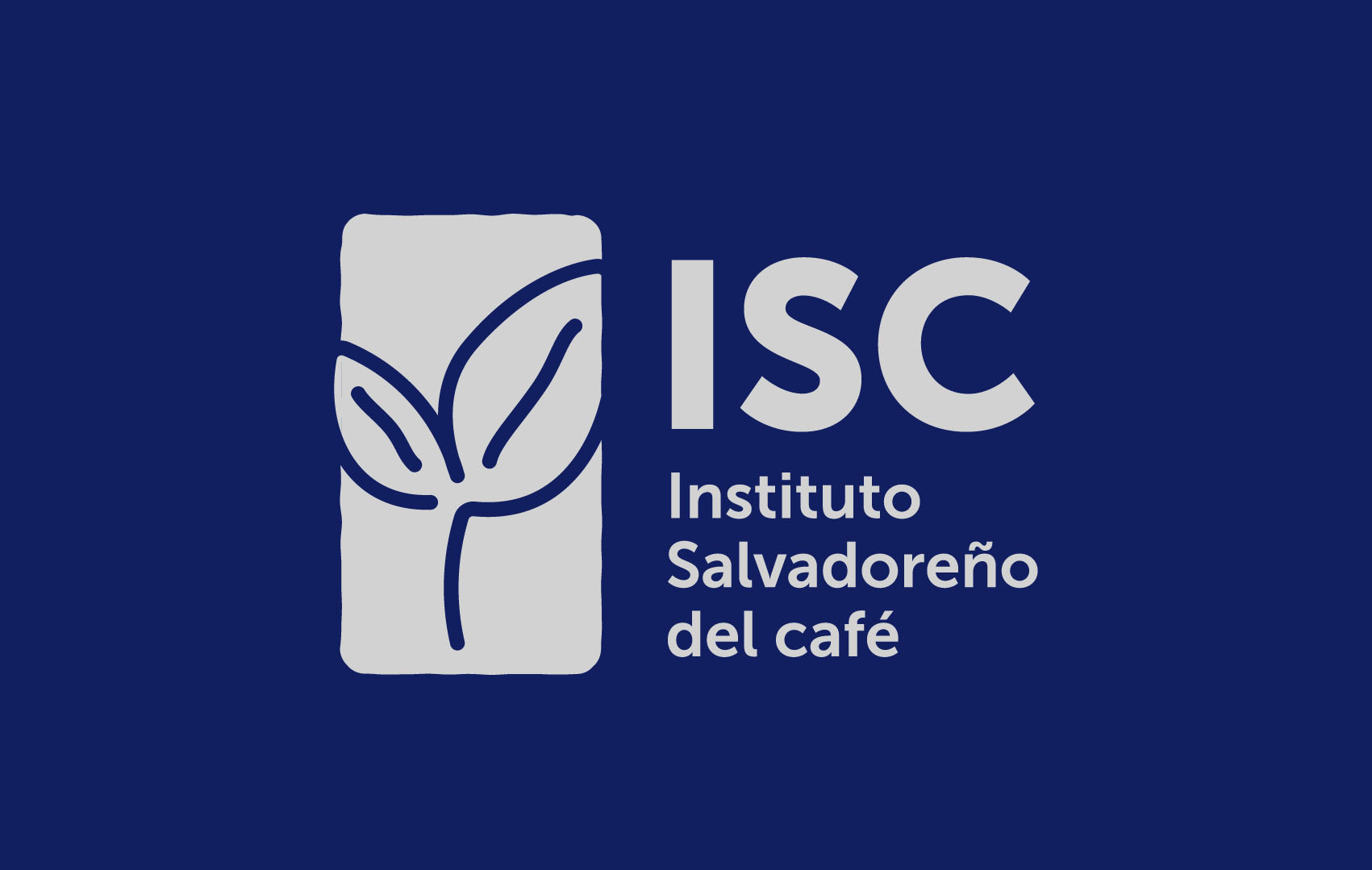El Salvador consolidated its coffee industry in the mid-twentieth century, which allowed the country to position itself as the third largest coffee exporter in the world. However, over the years, various social, economic, and environmental factors have reduced the country’s potential to produce this crop.
Since the appearance of coffee rust in the coffee park in 2012, El Salvador’s coffee yields and exports have fallen drastically, affecting producers’ profits.
In response to this problem, the Ministry of Agriculture of El Salvador has implemented the Coffee Transformation and Sustainable Takeoff Program as a stimulus for the improvement of the integral conditions of coffee growing.
One of the pillars of the Program is the creation of the Salvadoran Coffee Institute (ISC), a leading entity in scientific research, innovation, development, and technification of Salvadoran coffee growers.

For the creation of the ISC, the MOCCA program supported the preparation of a technical, economic, and financial feasibility study which evaluated the sustainability of the project. As a result of the study the need for a governing body to lead the renovation and rehabilitation of coffee plantations and the establishment of plantations in new areas of cultivation was determined.
In this interview we spoke with Mauricio Calderón Sansivirini, Director of the Salvadoran Coffee Institute, to learn about the contributions of this new institution and its impact on the development of the coffee sector in El Salvador.
How was the need determined to establish a governing institute for coffee growing in El Salvador?
The coffee sector in El Salvador lacked an institution in charge of leading research efforts for more than 10 years, a situation that caused great uncertainty because there was no strategic direction for the sector.
The creation of the Salvadoran Coffee Institute responds to the specific needs of the sector in terms of scientific research, technology transfer, and technification of Salvadoran coffee growers.
What are the main medium-term goals for making the services that the ISC intends to offer accessible to small coffee producers?
We are currently finalizing set up of the ISC’s work team. Our medium-term goals include the establishment of the research area, which will have first-class laboratories for soil and foliage diagnostics, phytoprotection and tissue culture, as well as a technology transfer area, which will be in charge of providing Salvadoran producers with training and agro-industrial development, as well as advice and training in good agricultural practices.
The ISC will also have a statistical data area in charge of developing coffee growing reports and determining indicators in El Salvador.

What is your assessment of the MOCCA program in relation to the contributions it is making to the Salvadoran coffee sector?
MOCCA is creating a positive impact on the country’s coffee sector, especially because of its work to provide technical and scientific assistance solutions to meet the needs of Salvadoran producers.
The MOCCA program has a comprehensive training methodology that provides support to producers throughout the entire coffee production cycle, helping them to increase their productivity and profitability.
In addition, the ability to collaborate with other institutions to promote coffee development adds value to the implementation of this program in El Salvador.
What would you say to a small coffee producer who feels that he/she still does not receive sufficient support?
We can assure that the Salvadoran Coffee Institute is already working to support small producers in the country. Our commitment is to coordinate and execute research, training, and technification initiatives that improve the productivity and quality of the coffee produced by Salvadoran coffee growers. We will work with other secretariats of the Ministry of Agriculture to strengthen all the links in the coffee value chain.
“It is time to unite and target the efforts of the sector in the same direction in order to promote our coffee industry and position ourselves in international markets”
Mauricio Calderón Sansivirini
Director of the Salvadoran Coffee Institute
El Salvador
MOCCA is a 7-year initiative funded by the United States Department of Agriculture (USDA) through its Food for Progress Program, which seeks to improve agricultural productivity and expand trade in agricultural products. The MOCCA project is being executed by a consortium led by TechnoServe.







